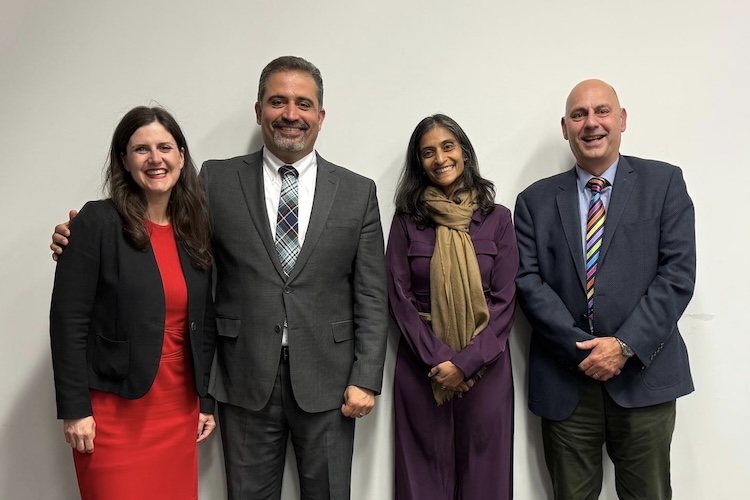St Andrews unites experts to tackle Scotland’s drug crisis

According to official data published by the National Records of Scotland, Scotland saw 1,017 drug-related deaths in 2024, the lowest figure since 2017 and 13 per cent fewer than in 2023. A sign of progress, but after years of grim statistics, these numbers still represent monumental, unnecessary and avoidable loss of human life and immense suffering for families and communities across the country.
In September, the University of St Andrews School of Medicine and Business School brought together colleagues from the Schools of Geography and Sustainable Development, Maths, Computer Science, Chemistry, Anthropology, Biology, Physics and Astronomy, experts from science, health, policy and enterprise to ask a fundamental question: how can we think differently about addiction, and work together across disciplines and sectors to create lasting change?
Led by Professor of Medicine, Psychiatry and Addictions Alex Baldacchino, whose research focuses on improving outcomes for people affected by substance misuse, and Dr Gosia Mitka, Senior Lecturer in the Business School’s Department of Economics and Vice-Dean for Engagement, Partnerships and Social Responsibility, the Innovation in Addiction Medicine Summit explored how new ways of thinking and working could reshape society’s approach to drug harm.
Over three days, clinicians, researchers, entrepreneurs and policymakers explored how technology, evidence and enterprise could combine to drive systemic change and build more joined-up, interdisciplinary responses to one of Scotland’s most persistent public health challenges. They also discussed creating a new initiative to connect expertise and expand impact from St Andrews.
“Behind every statistic is a person, a family, a community,” said Professor Baldacchino.
“Scotland has world-leading expertise in addiction research and care. Still, real progress will come when science, policy and lived experience come together to create solutions that are practical, humane and grounded in evidence.
“Addiction is not only a medical issue, it’s a societal one that demands collective responsibility. By linking the insights of medicine, business, policy and community, we can begin to change not only outcomes, but the way society understands and responds to drug harm.”